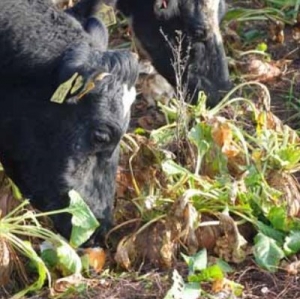ABOUT 120 Southland farmers will be interviewed as from next week as part of the study into what caused cows to become ill or die from eating swedes.
DairyNZ will talk to farmers both affected and unaffected by the swedes issue. They will be interviewed by a team of 10 people, who will ask a range of questions on topics such as their farm management practices, cropping and fertiliser history and climatic growing conditions this season.
DairyNZ's general manager for extension, Craig McBeth, says this will help DairyNZ establish the cause of the issue facing farmers in Southland.
"We need to understand the wide ranging factors that may have contributed to the outbreak of swede poisoning this spring. These include climate, soil type, trace minerals status, and fertiliser programmes. All these factors can influence the level of several natural compounds found in brassicas that can make them toxic," he says.
"This is a comprehensive survey and we've consulted with the local technical working group that includes veterinary representatives, Federated Farmers, PGG Wrightson Seeds and Ministry for Primary Industries."
McBeth says more than 400 farmers replied to DairyNZ's initial survey sent out last month, and the results have helped the industry research organisation plan the second phase questionnaire and find a range of farmers to interview.
Along with farmer interviews, DairyNZ's study into the swedes issue has a testing programme covering animals and plants, with control samples collected from crops taken across a number of swede varieties and animals that have not experienced any clinical animal health issues.
"The primary focus for sample collection was animal blood samples and crop tissue from a range of plant parts. We have the plant samples in frozen storage and worked fast to get vital samples before the crop disappeared," he says.
But McBeth says until all the data is collected and analysed, it is premature to speculate on any one cause or a narrow base of potential causes.
"We've given farmers as much advice as we can from what we know now. What we need to do is find out more through some robust research so we can give farmers some further evidence-backed advice early next year.
"We expect to have some results from our animal testing back by the end of October, and at that stage we should be able to give some more updated advice. However, the plant sampling is complex and will take much longer because of the robust nature of the testing that we will require. We don't expect any results on the plant front until February next year.
"We are keen to make sure we turn over the relevant stones in our search for answers on this issue. That means we don't expect to have any conclusive results from this study to share with farmers and others until March 2015.
"Depending on the findings of this work, there may also be a need to design and conduct further research," he says.











